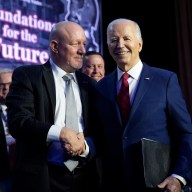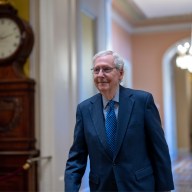By Michelle Nichols
UNITED NATIONS (Reuters) – The U.N. Security Council on Monday condemned the mass shooting at a Florida gay nightclub as the United States urged dozens of United Nations member states to drop their opposition to lesbian, gay, bisexual and transgender (LGBT) equality. The 15-member council denounced the attack “targeting persons as a result of their sexual orientation” in a U.S.-drafted statement, overcoming standard resistance at the U.N. to such language by African and Muslim states, as well as Russia. A shooter pledging allegiance to Islamic State carried out the deadliest mass shooting in U.S. history on Sunday at a gay nightclub in Orlando, Florida, killing 49 people.
Rights groups have accused Islamic State militants of killing dozens of gay men by throwing them from buildings or stoning them and then posting videos of the murders online.
“If we are united in our outrage by the killing of so many – and we are – let us be equally united around the basic premise of upholding the universal dignity of all persons regardless of who they love, not just around condemning the terrorists who kill them,” Deputy U.S. Ambassador David Pressman told the 193-member U.N. General Assembly on Monday. Being gay is a crime in at least 74 countries, the U.N. has said. The issue of gay rights consistently sparks heated debate at the United Nations.
Pressman noted that there is just one General Assembly resolution referencing “sexual orientation” and “gender identity,” a resolution that urges states to protect the right to life of all persons and investigate killings. He said every year “there is a pitched fight over whether it is appropriate to include sexual orientation in that protection.”
U.N. Secretary-General Ban Ki-moon, who condemned the Orlando attack on Sunday, has long advocated for gay rights but has faced opposition from African, Arab and Muslim states, as well as from Russia. In 2014, Ban announced the U.N. would recognize all same-sex marriages of its staff, allowing them to receive U.N. benefits. Russia unsuccessfully tried to overturn the move last year, with Saudi Arabia, China, Iran, India, Egypt, Pakistan, and Syria among 43 states that supported Moscow. In February the 54-member African Group, the 57-member Organisation of Islamic Cooperation and the 25-member “Group of Friends of the Family,” led by Egypt, Belarus and Qatar, protested the launch of six U.N. stamps promoting LGBT equality. Then a group of 51 Muslim states blocked 11 gay and transgender organizations from officially attending a high-level U.N. meeting last week on ending AIDS, sparking a protest by the United States, Canada and the European Union. (Reporting by Michelle Nichols; Editing by Cynthia Osterman and Tom Brown)


















